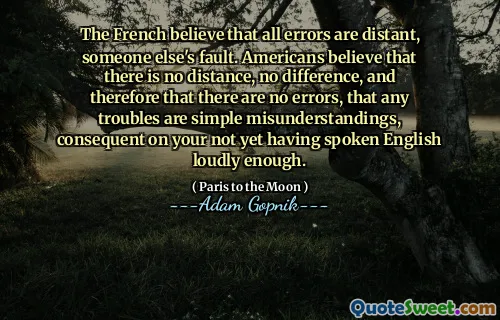
The fact that I am writing to you in English already falsifies what I wanted to tell you. My subject: how to explain to you that I don't belong to English though I belong nowhere else.
This quote captures the profound sense of linguistic and cultural identity struggle faced by bilingual individuals. The speaker expresses an internal conflict—writing in English, perhaps as a language of opportunity or necessity, inadvertently betrays their deeper message or identity. The idea that using English 'falsifies' what they truly want to communicate highlights how language is more than just a tool for expression; it’s intertwined with cultural roots and personal identity. This sentiment resonates deeply with the experience of many writers, immigrants, or anyone navigating multiple worlds through language. When someone is caught between two or more languages or cultures, their mode of communication becomes a site of tension—where choosing one language may feel like betraying another part of themselves. The speaker's admission of belonging 'nowhere else' emphasizes a feeling of rootlessness, of being caught in between, not fully part of their native culture nor entirely integrated into the dominant language society. Such words evoke empathy for those who live in the margins, caught in a linguistic limbo that complicates their sense of self. The quote prompts us to reflect about language as an identity marker—how it shapes perceptions, personal authenticity, and the way individuals are perceived by others. It invites a recognition of the nuanced realities faced by bilinguals and the importance of respecting the complexity of identity beyond linguistic boundaries.





